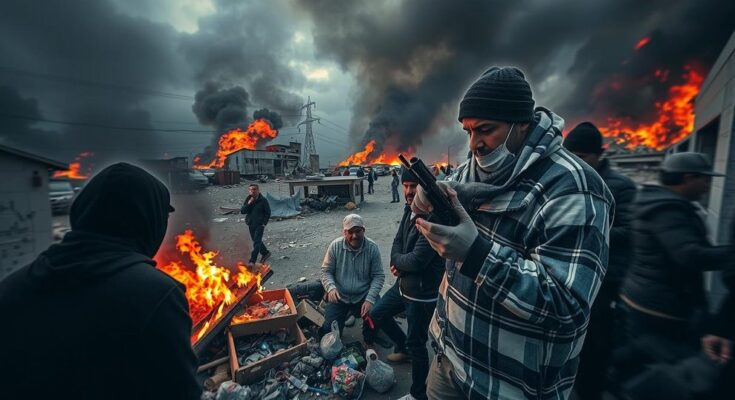The conflict in Gaza has persisted for 379 days with intense Israeli military operations, particularly in Jabalia, leading to substantial civilian casualties, including women and children. Despite international calls for a ceasefire following significant losses, military activities continue unabated. Additionally, tensions remain high in Lebanon with Hezbollah’s active involvement against Israeli forces. The humanitarian crisis persists amid claims of a systematic starvation campaign by Israel in Gaza, highlighting the dire need for urgent diplomatic intervention.
The ongoing conflict in Gaza has reached its 379th day, with Israeli military operations intensifying in the northern regions of the Gaza Strip, particularly around the Jabalia refugee camp. Recently, an airstrike in Jabalia led to significant casualties, affecting numerous women and children. Reports indicate that the region has endured a blockade for over two weeks, alongside a heavy presence of Israeli troops including the deployment of the Givati Brigade. The Ministry of Health in Gaza announced that three massacres took place within 24 hours, resulting in 19 deaths and 91 injuries, and collectively highlighting the alarming toll of the conflict—over 42,500 dead and nearly 100,000 injured since October 7, 2023. Furthermore, the disruption of communication networks in northern Gaza has drawn criticism from Hamas, which suggested that this is an attempt by Israeli forces to isolate the local population and obscure the atrocities being committed. With tens of thousands of Palestinians trapped and defying evacuation orders amidst the ongoing ground attacks, the situation remains dire. Hamas reported the assassination of its leader Yahya Sinwar, stirring calls for a ceasefire from various global leaders including U.S. President Joe Biden and French President Emmanuel Macron. The United Nations has also weighed in, with UN independent investigator Michael Fakhri alleging that Israel is conducting a “starvation campaign” despite delivering significant humanitarian aid to the region. On the military front, the Al-Quds Brigades and Qassam Brigades, aligned with Islamic Jihad and Hamas respectively, have reported successful attacks on Israeli military vehicles in northern Gaza. In Lebanon, Israeli forces intercepted drones launched toward northern Israel, while Hezbollah claimed responsibility for missile attacks on Israeli territory. Israeli airstrikes in southern Lebanon have continued, prompting a declaration from Hezbollah of entering a more aggressive phase of confrontation against Israeli forces. Lebanese Prime Minister Najib Mikati emphasized the urgency for a ceasefire and the protection of civilians during discussions with Italian Prime Minister Giorgia Meloni, reaffirming Lebanon’s commitment to international resolutions regarding regional stability and security.
The article addresses the escalating conflict between Israel and Palestinians, particularly focusing on the situation in Gaza and the ongoing military operations and their implications on civilian life. It reflects on the humanitarian crisis exacerbated by military actions, international calls for a ceasefire, and the involvement of regional actors such as Hezbollah in Lebanon. The historical and contemporary complexities of the Israel-Palestine conflict are vital in understanding the current circumstances described in the article.
In conclusion, the situation in Gaza remains critically severe as Israeli military actions escalate, leading to high civilian casualties and significant humanitarian concerns. International leaders are advocating for a ceasefire, yet military engagements continue, complicating efforts to stabilize the region. Lebanon’s role as a neighboring country experiencing spillover effects from the conflict adds to the urgency of diplomatic resolutions. The article underscores the ongoing tragedy of war, particularly its impact on innocent civilians caught in the crossfire.
Original Source: www.dailynewsegypt.com




